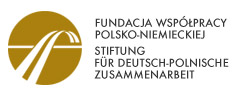Using community-based data monitoring to track gender equality realities on the ground
New York: Official Side Event to CSW62
12.03.2018 |

Aijzamal Bakaishova from Alga presenting the results of the community-based data collection they have carried out with women2030 in Kyrgyzstan

WECF together with UN Women and the German Ministry of Development Cooperation (Bundesministerium für Entwicklungszusammenarbeit) convened a side event with the title "Turning Promises Into Action: Gender Equality in the 2030 Agenda for Sustainable Development” at the Permanent Mission of Germany to the UN in New York. At the heart of the event was the presentation of the UN Women report “Turning Promises into Action” which had already been launched in Berlin, Nairobi and New York in February 2018.
The event was set up as a panel discussion sharing key lessons from the flagship report of UN Women on gender equality within the Agenda 2030 and bringing together experiences from governments, intergovernmental organisations from Jordan and Latin America and the Caribbean, as well as grassroots organisations from Kyrgyzstan and Uganda. The event specifically discussed the monitoring of the progress on gender equality within the implementation of the Sustainable Development Goals (SDGs). The importance of gender disaggregated data as well as a more gender inclusive indicator framework and a robust monitoring scheme were identified as key factors for the gender-responsive SDGs implementation.
WECF’s partner Aijzamal Bakaishova from Alga in Kyrgyzstan presented results of the recently finalised gender assessment under the Women 2030 programme. Within this assessment 740 women and men had been interviewed and 13 focus group discussions had taken place. Questions about the general living conditions, about time spent for unpaid and paid work, about hygiene and sanitation at home and at school/work as well as about decision-making and about equality between men and women in general provided a deep insight about the situation of women and men in Kyrgyzstan.

WECF’s Ugandan partner Agnes Mirembe also shared her experience as director of ARUWE on monitoring data from women living in rural areas producing food and being engaged in food cooperatives. She made it very clear that only the continuous data collection and dissemination amongst decision-makers will lead to an adaptation of policies that benefit women from rural areas on the ground.
The key role monitoring on the local level plays to hold governments accountable was shown by WECF’s partners and provided a very important and balanced input from WECF to this high-level panel event.
Presentations
We are at #CSW62, and two of our local #women2030 partners are currently presenting at @UN_Women side event on SDGs monitoring. Check out this flyer to learn more about our @women2030 project and visit our website: https://t.co/Cv7CsCkUe0 pic.twitter.com/iFiGDkeGte
— WECF international (@WECF_INT) March 12, 2018
Related News
The 62nd Commission on the Status of Women
Worldwide representatives and officials gathered at the United Nations headquarters in New York City to discuss the matters of women and sustainability
28.03.2018
Using community-based data monitoring to track gender equality realities on the ground
New York: Official Side Event to CSW62
12.03.2018



































